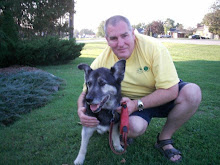First, he pointed out that the wisdom of God is on display in the universe for all to see. While he saw that those who studied in various areas could and should see this is more depth, at the same time he maintained that even those who have no such education can see this. He wrote,
Even the common folk and the most untutored, who have been taught only by the aid of th eyes, cannot be unaware of the excellence of hte divine art, for it reveals itself in this innumerable and yet distinct and well-ordered variety of the heavenly host. It is, accordingly, clear that there is no one to whom the Lord does not abundantly show his wisdom.This brought back memories of the many times I have lain on the beach while camping at one provincial park or another staring at the overwhelming multitude of stars, or the time when on my first trip out west I woke in the early morning in the back of the van to look out the windshield and see the Rocky Mountains rising majestically up to the bright blue sky with a haze of morning fog cloaking their feet. In each of those moments and many more I have been amazed at the beauty, the majesty, the wonderfulness of this universe to the point of realizing once again that such things do not happen by chance, not to mention the appreciation of their beauty must have it source in something more than mere biological processes. Each time it was a reminder of the awesome God who made all things. It is in such moments that I wonder how anyone can maintain there is no God.
But, Calvin did not stop there. He pointed that even more than that human beings point to the immeasurable wisdom of God. In each one of us, their is found more than enough to show the wisdom of God. Look at all the parts of the body, look at the brain, look at the creativity, look at all of that and more. It all testifies to and shows the divine wisdom of God.
Yet, Calvin pointed out, even with all this, especially the great gifts and design of humankind, people still turn away from God. We read,
They (human beings) have within themselves a workshop graced with God's unnumbered works and, at the same time, a storehouse overflowing with inestimable riches. They ought, then to break forth into praise of him but are actually puffed up and swollen with all the more pride . . . How detestable, I ask you, is this madness: that man, finding God in his body and soul a hundred times, on this very pretence of excellence denies that there is a God?Again, this is such a contemporary statement. After almost 500 years, in spite of all the changes, people still take the very gifts of God, the very being and body he has granted them, made in the image of God, and use it to build their own pride. They claim its talents as their own, with no thought of the creator and no gratitude to him. Sadly, for most of us there is not a little of this. I know when reading this I can see such and attitude rearing its ugly head. It has become the common way of thinking and acting.
From this Calvin moved on to point out that another danger is to attribute what is due to the creator to the creation. To look at the world, the universe as being responsible for all that is seen in it. To speak of nature as doing this or that. Such words from a person who wrote at a time long before Darwin, but such words to speak to us today.
Calvin's response to such thinking of his own time, long before evolutionary theory, which we need to hear today was this, "This is indeed making a shadow deity to drive away the true God, whom we should fear and adore." That is what was being done by those back in Calvin's day who spoke of a "universal mind", and it is true today of those who speak in terms of evolution doing this or that. In both, they are but showing the very sense of the divine that Calvin has argued every human has, exists in them, and because of that they are establishing their own God, their own deity, even if they don't actually acknowledge him as such.

0 comments:
Post a Comment